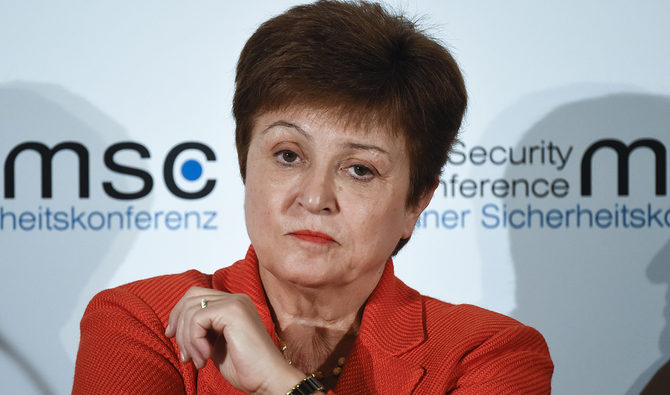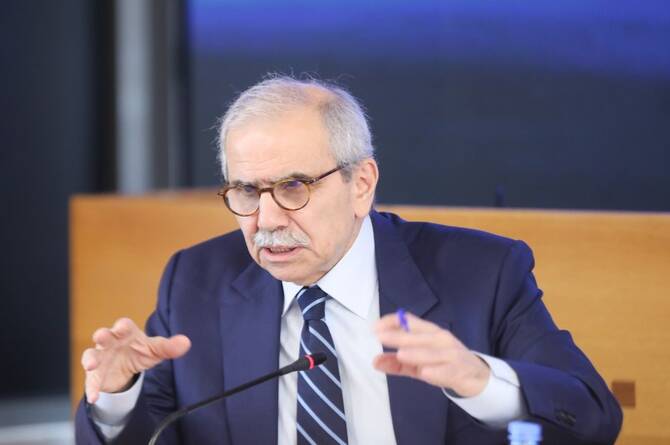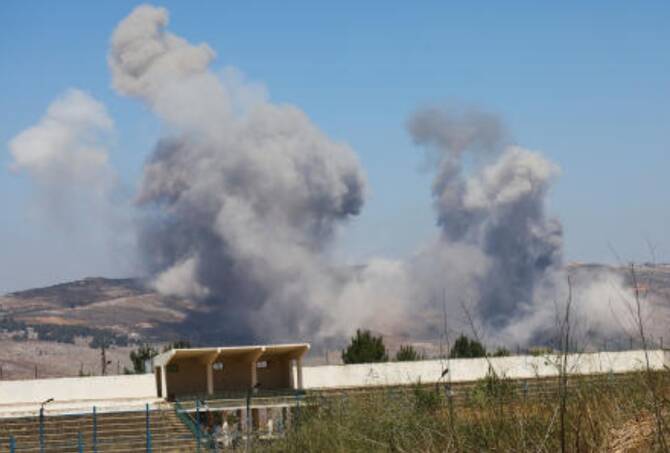BEIRUT: The head of the International Monetary Fund (IMF) has issued a doom-laden forecast over the outcome of crucial talks aimed at solving Lebanon’s financial woes.
Kristalina Georgieva, the IMF’s managing director, said she did not “expect progress in the negotiations with the Lebanese officials” over helping the country out of its economic crisis.
Former Lebanese Interior Minister Ziyad Baroud told Arab News: “What Georgieva said has already been stated for years by the International Support Group for Lebanon (ISG), but her declaration comes at a time when Lebanon is negotiating with the IMF.”
Speaking on Friday, the IMF chief said: “IMF officials are still working with Lebanon, but it is not clear whether it is possible for the country’s leaders, active parties, and society to agree on implementing the reforms needed to stabilize the economy and boost economic growth.”
The financial meltdown in the country has seen the Lebanese pound lose 75 percent of its value over the past eight months.
Georgieva pointed out that “the core challenge is to implement a set of very difficult but necessary reforms.”
She said that the situation in Lebanon was “breaking her heart,” adding that it was a “country which has a strong culture of entrepreneurship, and is hosting refugees from Palestine and Syria to help alleviate a major humanitarian crisis.”
Reaching an agreement with the IMF would require a strong commitment from the Lebanese government to implement a set of structural reforms in public institutions.
The ISG has called for a prompt resolution to problems in the electricity sector, the issuance of a law that guarantees the independence of the judiciary, and new rules controlling public-sector purchasing and tendering by ministries, public institutions, councils, and municipalities.
One of the most urgent issues for Lebanon is to restore the confidence of its citizens, the international community, and international financial institutions.
Economist Issam Al-Jurdi, told Arab News: “There is a prevalent belief in Lebanon that the reform process is limited to simple traditional measures, however what the IMF is asking for is reforms to the public sector that is subject to political control, and it is through these reforms that sectoral and structural reforms could be achieved.
“The reason for refraining from doing these reforms is that they touch to the clientelism and nepotism that is widespread throughout the Lebanese political system, and that is used by the political class as a means to uphold power, embezzle public funds, and ensure appointment of proteges, in the name of the confessional system and sectarian privileges.
“The call for reforms is supposed to extend to vital sectors related to treasury funds such as electricity, communications, water, dams, and transportation.”
Al-Jurdi feared that the Lebanese Parliament “would interfere, under the pretext of unifying the figures of the government bailout plan that was submitted to the IMF, to provide support to the banks at the expense of depositors whose deposits were seized by the banks.”
Baroud said that the call for reforms was “most and foremost a Lebanese one before being an IMF demand, and is dictated by the need for good governance and for the preservation of the national interests of Lebanon.
“When people demand these reforms, they do so because they are popular demands, but it seems that the political class does not want to hear the outcry of the people, which has brought us to the stage where reforms could no longer be mere wishful thinking, but rather an existential necessity for survival.
“Perhaps some parties are not listening to calls for reform on purpose, and we are paying the price. They talk of sacrifices that they are willing to make, but in the end, they are asking the citizens to do sacrifices,” added Baroud.
Al-Jurdi said: “After the global financial meltdown in 2008, the IMF amended its previous policies. It is no longer satisfied with the traditional measures that require reducing the deficit, eliminating subsidies, and floating the exchange rate, but it now demands a social program to support poor and marginalized social groups, as the IMF strict reform measures have severe repercussions on these groups.”
He added that Georgieva knew that Lebanon had huge potential and should not have reached this situation.






















